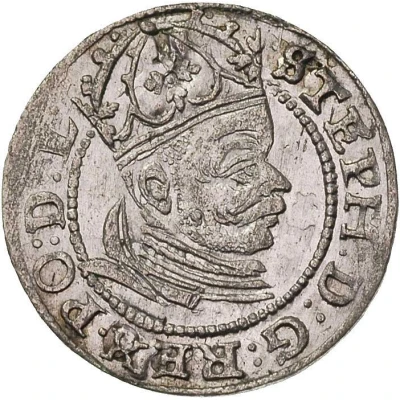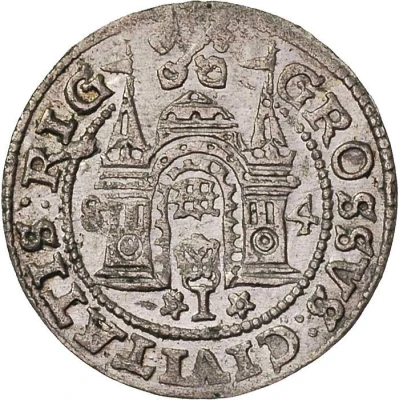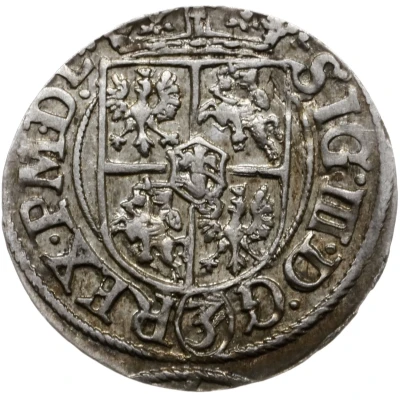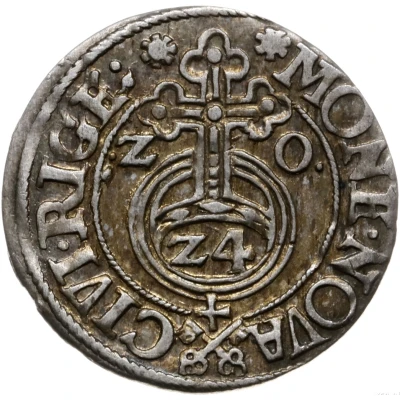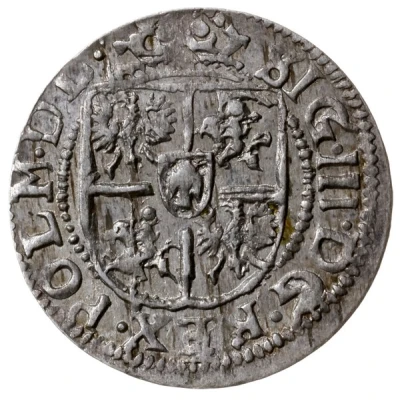
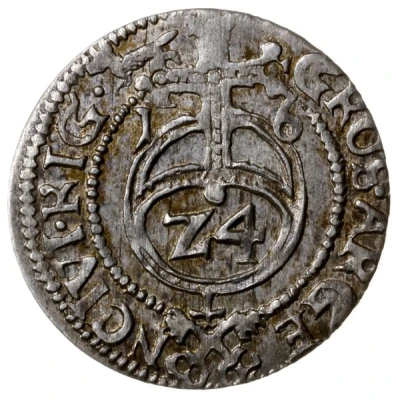

© Warszawskie Centrum Numizmatyczne s.j.
1½ Grossus - Sigismund III Vasa Riga
| Billon | 1.11 g | 17.7 mm |
| Issuer | Duchy of Livonia |
|---|---|
| Duke | Sigismund III Vasa (1587-1629) |
| Type | Standard circulation coin |
| Years | 1616-1617 |
| Value | 1.5 Grossus = 1⁄24 Thaler |
| Currency | Thaler (1581-1629) |
| Composition | Billon |
| Weight | 1.11 g |
| Diameter | 17.7 mm |
| Shape | Round |
| Orientation | Variable alignment ↺ |
| Demonetized | Yes |
| Updated | 2024-10-06 |
| Numista | N#78800 |
|---|---|
| Rarity index | 90% |
Reverse
Cross on orb containing value, above crossed keys, and separating date, all surrounded by legend.
Script: Latin
Lettering:
GROS · ARGE - N · CIVI · RIG ·
1 - 6
Z4
Translation:
Grossus Argentea Civitatis Rigensis
Silver Grossus of the city of Riga
Edge
Plain
Comment
The exact lettering of the surrounding legend may vary.1616:
1) SIG · III · DG · REX · POL · M · D · L · / GROS · ARGE - N · CIVI · RIG ·
2) SIG · III · DG · REX · POL · M : L : / GROS · ARGE - N · CIVI · RIG ·
1617:
1) SIGIS · III · D . G · REX · PO · M · D · L · / GROS · AR - GE · CIVI · RIG ·
2) SIGIS · III · D . G · REX · PO · M · D · L · / GROS · AR - GE · CIV · RIG ·
An example of another coin of the same type:
© Warszawskie Centrum Numizmatyczne s.j.
Interesting fact
The 1½ Grossus coin from the Duchy of Livonia, featuring Sigismund III Vasa, is interesting because it was minted during a time of great economic and political change in the region. The coin was issued in 1616-1617, a period when the Duchy of Livonia was experiencing significant economic growth and trade, particularly with the Hanseatic League. The coin's minting was likely a response to the increased demand for currency during this time, and its design reflects the influence of the Hanseatic League's currency standards. Additionally, the use of Billon, a copper and silver alloy, was a common practice in the region during this period, and the coin's weight of 1.11 g is consistent with other coins of similar value from the time. Overall, the 1½ Grossus coin from the Duchy of Livonia is a fascinating example of the economic and cultural exchange that occurred in the region during the early 17th century.
